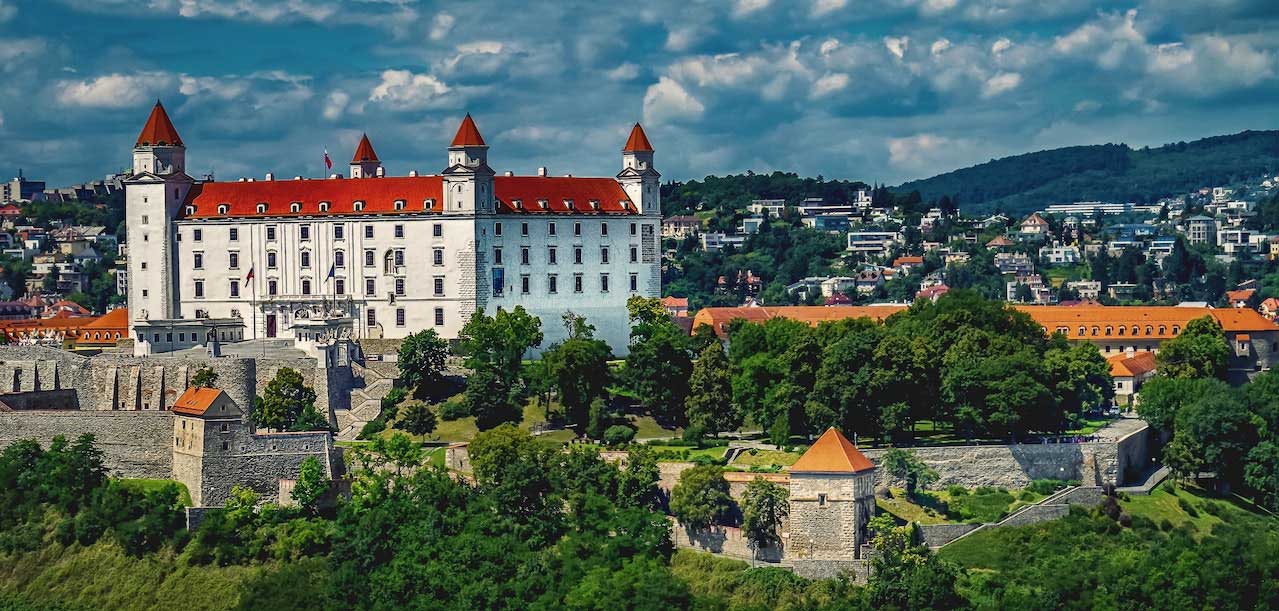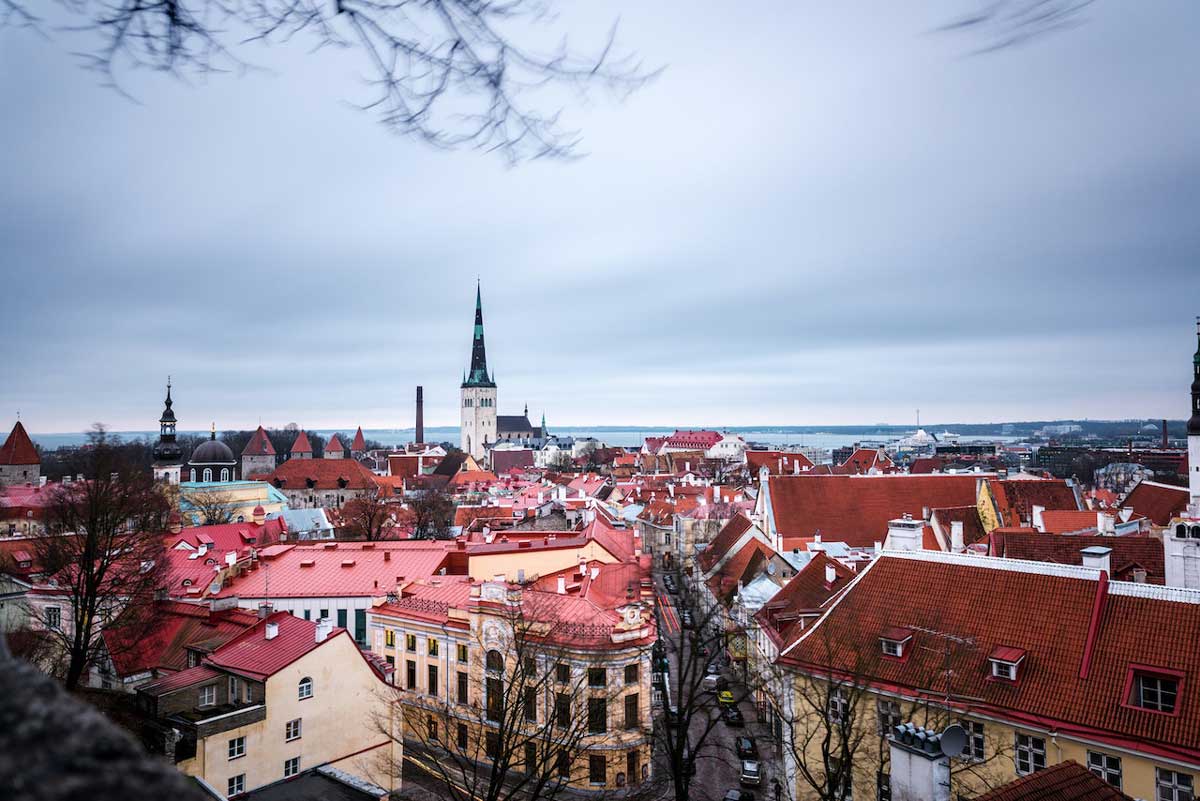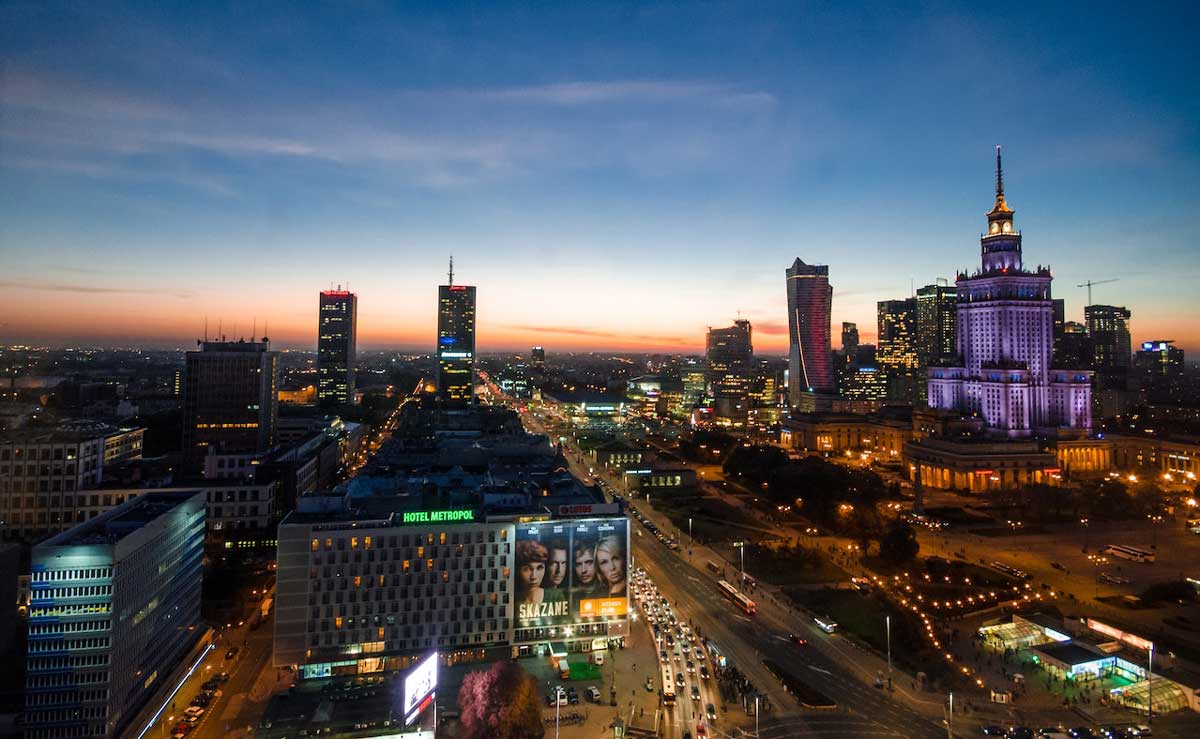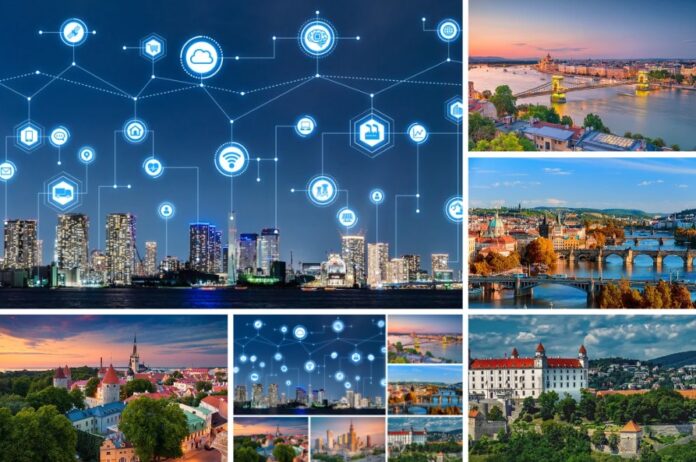Here are five ways cities are being transformed with the implementation of smart city technology across Central and Eastern Europe.
In today’s world, urbanization has led to a drastic change in the way we live our lives, and technology has played a crucial role in this transformation. The concept of smart cities has emerged, where cities utilize the power of technology to create more efficient, sustainable, and modern places to live.
The Central and Eastern European (CEE) region has been making significant progress in this domain. This article explores five smart city innovations, with examples from the CEE region.
1. Smart Mobility

Smart mobility is one of the most significant advancements that smart cities can offer. It is about using technology to create more efficient and sustainable transportation systems. This includes everything from electric vehicles and intelligent traffic management to smart parking and public transportation.
The Slovak capital of Bratislava is an excellent example of a smart mobility system. It has implemented an integrated transport system that utilizes a range of technologies to provide citizens with more efficient and sustainable mobility options. The system includes a combination of electric buses, trams, and trolleybuses, as well as a bike-sharing scheme and a mobile app that allows users to plan their journeys and pay for their tickets. The result is an efficient and affordable transport system that reduces traffic congestion and carbon emissions.
Another application of smart mobility systems can be found in the neighboring Czech Republic’s capital, Prague. The city has implemented a smart parking system that utilizes sensors to monitor parking spaces and provide real-time information to drivers. The system includes a mobile app that allows drivers to locate available parking spaces and pay without the need for cash. This innovative system helps to reduce traffic congestion and optimize parking spaces.
2. Digital Citizen Services

Digital citizen services are essential for citizens to interact with their city and its services more effectively. This includes everything from digital solutions for public services to smart streetlights and public spaces. Digital citizenship also encompasses bringing more transparency and access to public services like waste management and the emission of documents.
Tallinn, the capital city of Estonia, has implemented a digital identity system that allows citizens to access a range of public and private services online using a single digital ID. The system is based on a secure digital signature that can be used to sign documents and transactions securely.
The country is always in the spotlight for being at the forefront of digital citizenship services. Their e-citizenship initiative is the biggest example, allowing entrepreneurs and digital nomads to establish their companies in the country in an automated way, completely online.
3. Public Safety & Security

Public safety and security are crucial for any city. Smart cities can use technology to enhance public safety and security, including intelligent networks and communication technologies, and advanced surveillance systems.
The capital of Poland, Warsaw, has implemented a smart city platform that integrates data from various sensors and systems, including CCTV cameras, traffic management systems, and emergency services. The platform enables the city to respond quickly to incidents and coordinate emergency services more effectively. Although such technologies raise questions about privacy rights, Warsaw has managed to strike a balance, and it is no longer among the most surveilled cities in Europe.
4. Smart Waste Management

Waste management is an essential aspect of any city’s operations, and it becomes even more critical as cities grow and populations increase. Smart waste management systems aim to optimize waste collection, transportation, and disposal, reducing costs and environmental impact while improving overall efficiency.
Prague has installed underground recyclable bins with smart sensors to manage waste efficiently. This technology allows the city to monitor the capacity of the waste bins, issues that might be clogging or blocking the bins, and monitoring for possible fire incidents.
Solutions like these bring compounding benefits as they allow the city to plan waste collection more efficiently, reducing the number of trucks on the streets and lowering traffic pollution.
5. Smart Energy

Smart energy is built on the idea of using advanced technologies and data analytics to optimize energy usage while reducing carbon emissions and waste. By monitoring and analyzing energy consumption in real time, it is possible to identify areas where energy is being wasted or used inefficiently. Some of the technologies used in smart energy include sensors, smart meters, and energy management systems that allow for remote monitoring and control of energy consumption.
One example of the usage of smart energy is the development of smart grids, which use advanced communication and control technologies to enable more efficient and reliable distribution of energy. Another example is the development of smart buildings, which use sensors and automation to optimize energy usage and reduce waste. For instance, a smart building may automatically adjust lighting and heating based on occupancy patterns or use solar panels to generate energy on-site.
In Budapest, the capital of Hungary, a network was built which allows the city to remotely monitor and control the usage of street lights. According to its “Smart Budapest” vision, the city aims to reduce 30% of energy consumption by 2030. The IoT-based streetlight management system not only optimizes energy consumption but also provides the city with data that can be used to optimize other areas of the city’s energy usage.
The Future of Smart Cities in the CEE
Smart city innovations are transforming the way we live in urban environments. From smart mobility to digital citizen services, advanced waste management, and smart energy, technological innovations are making cities more efficient, sustainable, and livable.
The CEE region has seen remarkable progress in this field, with cities like Bratislava, Prague, Tallinn, Warsaw, and Budapest leading the way in adopting and implementing smart city solutions.
As urban populations continue to grow, smart city technologies will play an increasingly important role in making our cities more sustainable, resilient, and equitable. The future of smart cities in the CEE region is promising, and we can expect to see more innovations that will make our cities better places to live in.


